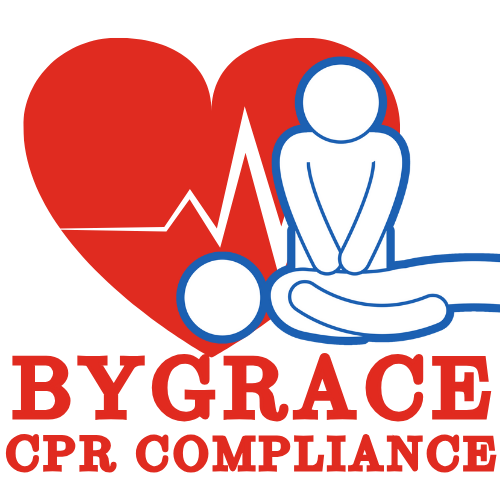Colon cancer, also known as colorectal cancer, is a type of cancer that starts in the colon or rectum. The colon is the large intestine, and the rectum is the last part of the digestive system before the anus. Colon cancer can be very serious, but it is treatable in many cases.
According to the American Cancer Society, about 150,000 people in the United States are diagnosed with colon cancer each year. Colon cancer is more common in people over the age of 50, but it can occur at any age. The overall 5-year survival rate for colon cancer is about 64%, but the survival rate can vary depending on the stage of the cancer.
Stages Of Colon Cancer
Colon cancer is divided into five stages: stage 0, stage I, stage II, stage III, and stage IV.
- Stage 0 colon cancer is very early cancer that is only in the innermost lining of the colon.
- Stage I, II, and III colon cancer are cancers that have grown beyond the inner lining of the colon, but haven’t spread to distant parts of the body.
- Stage IV colon cancer is cancer that has spread to distant parts of the body, such as the liver or lungs.
Symptoms Of Colon Cancer
The most common symptom of colon cancer is a change in bowel habits. This can include constipation, diarrhea, or a change in the consistency of your stool.
Other symptoms can include abdominal pain, rectal bleeding, fatigue, and unexplained weight loss. It’s important to remember that these symptoms can also be caused by other conditions, so it’s important to talk to your doctor if you have any of these symptoms.
There are a few other possible symptoms of colon cancer that are less common. These include nausea and vomiting, a feeling of fullness or bloating, and anemia.
Anemia is a condition in which you have a low level of red blood cells. Anemia can cause fatigue and shortness of breath. If you have any of these symptoms, it’s important to see your doctor right away.
Causes of Colon Cancer
There are a number of risk factors that can increase a person’s chance of developing colon cancer. Some of these risk factors are things you can’t control, like family history and age. Other risk factors are things you can control, like diet and exercise.
Eating a diet high in red and processed meats, not getting enough exercise, being overweight, and smoking are all risk factors for colon cancer. There are also certain medical conditions that can increase the risk of colon cancer, like inflammatory bowel disease.
We’ve already talked about some risk factors that you can’t control, like family history and age. As for diet, eating a lot of red and processed meats can increase your risk of colon cancer. Red meat includes beef, lamb, and pork. Processed meats include hot dogs, bacon, and sausage.
It’s not clear exactly how red and processed meats increase the risk of colon cancer, but it may be because of substances in the meat that can cause damage to cells in the colon.
Some risk factors that you can’t control, like age and gender. Colon cancer is more common in people who are 50 years of age or older. It’s also more common in men than in women.
Another risk factor you can’t control is ethnicity. African Americans and Ashkenazi Jews have a higher risk of colon cancer. It’s not clear why this is the case, but researchers are trying to learn more about the link between ethnicity and colon cancer.
Preventive Measures to lower Risk of Colon Cancer
Sure, I’ll tell you about some preventive measures that can help lower your risk of colon cancer.
- One is to get regular screenings for colon cancer. Screening tests can help find colon cancer early, when it’s easier to treat. Screening tests include a colonoscopy, a sigmoidoscopy, and a stool test. Your doctor can help you decide which screening test is right for you.
- Another preventive measure is to talk to your doctor about your family history of cancer. Knowing your family history can help you and your doctor decide when you should start screening for colon cancer.
- Getting regular physical activity can lower your risk of colon cancer, even if you don’t lose weight. The American Cancer Society recommends getting at least 150 minutes of moderate-intensity physical activity or 75 minutes of vigorous-intensity physical activity each week. It’s also a good idea to limit the amount of time you spend sitting.
- One is to maintain a healthy weight. Being overweight or obese is linked to an increased risk of colon cancer. Another preventive measure is to limit your alcohol intake. Drinking alcohol in moderation can help lower your risk of colon cancer. The American Cancer Society recommends limiting yourself to no more than one drink per day for women and two drinks per day for men.
Key Takeaways
Here are the key takeaways on colon cancer:
- Colon cancer is a common type of cancer, and it’s more common in older adults.
- The most common symptoms of colon cancer are a change in bowel habits, abdominal pain, and rectal bleeding.
- There are several risk factors for colon cancer, such as family history, obesity, and alcohol consumption.
- There are also several preventive measures you can take to lower your risk of colon cancer.
- If you have any of the symptoms of colon cancer, it’s important to see your doctor right away.
Bottom Line
Colon cancer is a serious disease, but it’s also preventable. There are several things you can do to reduce your risk of developing colon cancer. It’s also important to be aware of the symptoms of colon cancer, and to see your doctor right away if you have any of these symptoms.

0 Comments